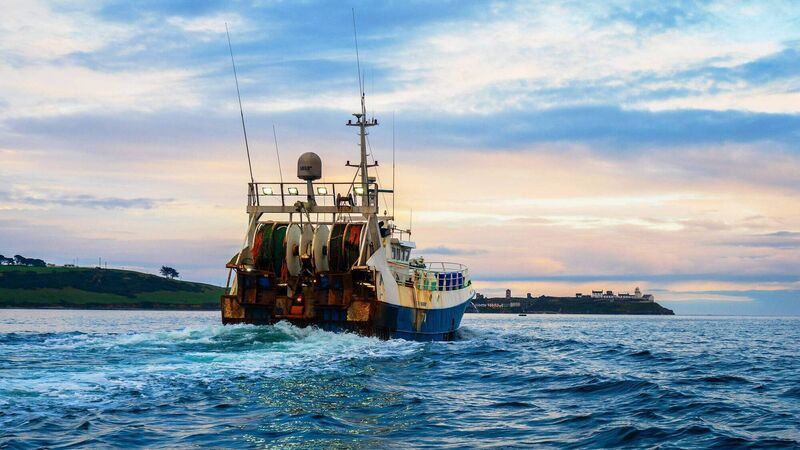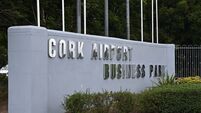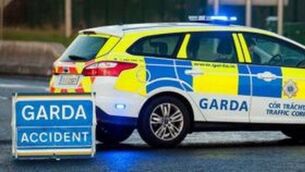Fleet reduction is a signal that local economies will be hit hard

The future is uncertain for the Irish fishing fleet. Picture: Bob Bateman
Twenty-six Cork trawlers are to leave the Irish fishing fleet.
This is a high number and an indication of how bad the economic situation is for the fishing industry.
Of this number, the largest cohort comes from Castletownbere, where 19 boats have signified their intention to leave the port’s fleet.
This will have a deleterious impact on the West Cork town’s economy. Castletownbere is the biggest whitefish port in the country and the loss of so many boats from the fleet will hit community business areas which had provided services such as maintenance and provisioning of the boats, with food, fuel and other requirements.
“All of this will cause harm and damage, to coastal communities,” the leading fishing industry organisations — the Irish Fish Producers, Killybegs Fishermen’s Organisation, the Irish Fish Producers and Exporters’ Association, and the Irish South and East Fish Producers, have warned.
The chief executive of the South West Fish Producers’ Organisation which is headquartered in the town, Patrick Murphy, said: “Unfortunately and sadly, families are being wiped out of the industry.
“It is appalling that we have the best, most-productive fishing waters in Europe, but the government has again failed the Irish fishing industry. Other member states in the EU have been given the biggest catching rights in Irish waters and the Government has failed to achieve this.
“If such a situation was facing any other industry that was suffering as fishing and the coastal communities are, there would be a major outcry, but fishing is ignored.”
Five boat owners in Union Hall have also expressed their intention to leave fishing and two in Schull.
Boats are leaving the industry because owners say they cannot continue to make a living from fishing, which has suffered repeated blows.
The industry organisations have made clear that their belief that the State does not value or appreciate its role in the food supply chain or economically to coastal regions.
Industry organisations have been warning for months that the crisis it faced was not being adequately responded to by government. Now what they have warned about is happening.
In the EU/Brexit negotiations, the government acknowledged that Ireland got the worst deal in reduction of fish catch quotas. Following the deal, Taoiseach Micheál Martin and Marine Minister Charlie McConalogue pledged to the industry that they would demand “equal burden sharing” of the reductions by other member states.
But the other states did not agree. The EU offered financial compensation, but not support catch quota adjustments. Financial inducements were offered to balance the size of the Irish fleet with the catch quotas with which it was left.
This was the result of the more powerful EU states which dominate fishing rights rejecting sharing the burden of Brexit cutbacks. Irish waters are too valuable for them where they have the biggest quotas while the Irish fleet has one of the smallest.
As a result what is described by government as a “voluntary decommissioning scheme” is now, effectively, forcing Cork and other Irish boats out of fishing.
The industry blames the government for failure to protect the Irish fleet: “What is happening is because of government failure, political neglect, lack of concern for the coastal areas, disinterest in fishing, an urban-centred government, so the coalition of Fianna Fáil, Fine Gael, the Green Party, are all responsible for about a third of the national fleet being removed,” summarises what I have been told this week by angry industry representatives.
The government has backed the EU-financially supported decommissioning scheme to get fishermen to leave the industry.
For fishing boat owners who have applied to the voluntary scheme, it is not yet known exactly what financial offers will be made to them.
However, there are owners who have outstanding bank loans on boats bought under encouragement to modernise the fleet and make fishing safer with government promises of a better EU deal that were not delivered. There is concern, too, that payouts may not be as generous as expected.
Government TDs in coastal areas fear a political backlash when the full implications of decommissioning become clear, with the impact it will have on local economies.
The Department of the Marine pointed to decommissioning being recommended by the Seafood Task Force, which was set up by Marine Minister McConalogue. Industry representatives on it have responded that the government’s failure in Brexit talks left no option.
Bord Iascaigh Mhara, which is administering the decommissioning scheme on behalf of the government, told me: “We have received 64 applications in total.
“These are being evaluated now and we will issue letters of offer to approved applications within three to four weeks of the closing date for applications, which was November 18.”
Not all port areas from which fishing boats will be lost have been identified, but amongst those known are: Dingle (5); Dunmore East (4); Clogherhead (6; Greencastle (3); Kilmore Quay (2); Howth (2); Killybegs (2); Rossaveal (7); Portmagee (2).
- Email:
tommacsweeneymarine@gmail.com - Tom MacSweeney Maritime Ireland Podcast at:
maritimeirelandradioshow.ie







 App?
App?


